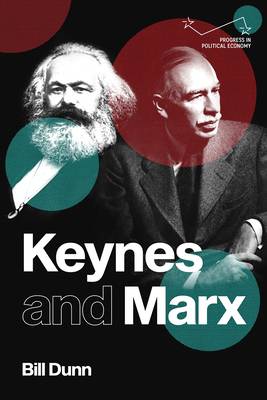
Bedankt voor het vertrouwen het afgelopen jaar! Om jou te bedanken bieden we GRATIS verzending (in België) aan op alles gedurende de hele maand januari.
- Afhalen na 1 uur in een winkel met voorraad
- In januari gratis thuislevering in België
- Ruim aanbod met 7 miljoen producten
Bedankt voor het vertrouwen het afgelopen jaar! Om jou te bedanken bieden we GRATIS verzending (in België) aan op alles gedurende de hele maand januari.
- Afhalen na 1 uur in een winkel met voorraad
- In januari gratis thuislevering in België
- Ruim aanbod met 7 miljoen producten
Zoeken
€ 209,45
+ 418 punten
Uitvoering
Omschrijving
Keynes was an elitist and pro-capitalist economist, whom the left should embrace with caution. But his analysis provides a concreteness missing from Marx and engages with critical issues of the modern world that Marx could not have foreseen. This book argues that a critical Marxist engagement can simultaneously increase the power of Keynes's insight and enrich Marxism.
To understand Keynes, whose work is liberally invoked but seldom read, Dunn explores him in the context of the extraordinary times in which he lived, his philosophy, and his politics. By offering a detailed overview of Keynes's critique of mainstream economics and General Theory, Dunn argues that Keynes provides an enduringly valuable critique of orthodoxy. The book develops a Marxist appropriation of Keynes's insights, arguing that a Marxist analysis of unemployment, capital and the role of the state can be enriched through such a critical engagement. The point is to change the world, not just to understand it. Thus the book considers the prospects of returning to Keynes, critically reviewing the practices that have come to be known as 'Keynesianism' and the limits of the theoretical traditions that have made claim to his legacy.Specificaties
Betrokkenen
- Auteur(s):
- Uitgeverij:
Inhoud
- Aantal bladzijden:
- 304
- Taal:
- Engels
- Reeks:
Eigenschappen
- Productcode (EAN):
- 9781526154903
- Verschijningsdatum:
- 22/06/2021
- Uitvoering:
- Hardcover
- Formaat:
- Genaaid
- Afmetingen:
- 156 mm x 234 mm
- Gewicht:
- 603 g

Alleen bij Standaard Boekhandel
+ 418 punten op je klantenkaart van Standaard Boekhandel
Beoordelingen
We publiceren alleen reviews die voldoen aan de voorwaarden voor reviews. Bekijk onze voorwaarden voor reviews.









